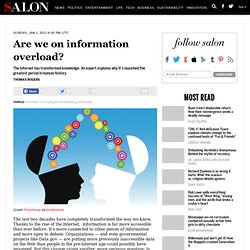

Shifting reading habits boost Read It Later in 2011. Nate Weiner is one of those accidental entrepreneurs who make Silicon Valley somewhat of a magical place.

Back in 2007, when he was working at a design shop in Minnesota, he was so busy he didn’t have time to read or see videos he came across the web. So he did what coders do: He wrote a little Firefox extension that allowed him to save and read (and watch) the content later when he got home. A few months later, Lifehacker discovered his extension and before he knew it, the brilliantly titled Read It Later was spreading across the web. Fast-forward to today, and that little Firefox extension has become a phenomenon. It works on most major platforms, including Android and iOS, and more than 300 apps (such as Zite, Reeder, Twitter, Pulse and Flipboard) have built in support for Read It Later. Read It Later, like many of its peers such as Instapaper, is part of a growing number of save-and-read-later apps that have benefitted from the emergence of the iPad. A year to remember. The Commodore 64 Is 30 Years Old. It’s been a long time since I clacked away on a C64 but I remember that hunk of pure computing power like it was yesterday.

The keyboard (complete with dingbats on the front surface), the power light that glowed like a monocular rat eye, the lines of dust that formed in the 80s-era case. It was a simpler time. That’s right: the Commodore 64 is 30 years old this week, appearing at CES in 1982 and ending up in third-grade classrooms and kids’ rooms for years after until, unceremoniously, millions of school custodians and parents dumped them in the trash as the PC took over desktops all over the world. The original 64 had 64KB of RAM but only 32KB was addressable by BASIC, a little advertising trick that has been repeated again and again, most recently in regards to the space available on the Nook Tablet. RegHardware has an excellent look back at the platform if you’re so inclined but just look at the computing power you could get for the price of an off-contract iPhone back in 1982. via BB.
Are we on information overload? The last two decades have completely transformed the way we know.

Thanks to the rise of the Internet, information is far more accessible than ever before. It’s more connected to other pieces of information and more open to debate. Organizations — and even governmental projects like Data.gov — are putting more previously inaccessible data on the Web than people in the pre-Internet age could possibly have imagined. But this change raises another, more ominous question: Is this deluge overwhelming our brains? In his new book, “Too Big to Know,” David Weinberger, a senior researcher at Harvard’s Berkman Center for Internet and Society, attempts to answer that question by looking at the ways our newly interconnected society is transforming the media, science and our everyday lives. Salon spoke to Weinberger over the phone about the rise of the information cloud, the demise of expert knowledge, and why this is the greatest time in human history. Yes. Yes, exactly.
OK. H.P.’s TouchPad, Some Say, Was Built on Flawed Software.